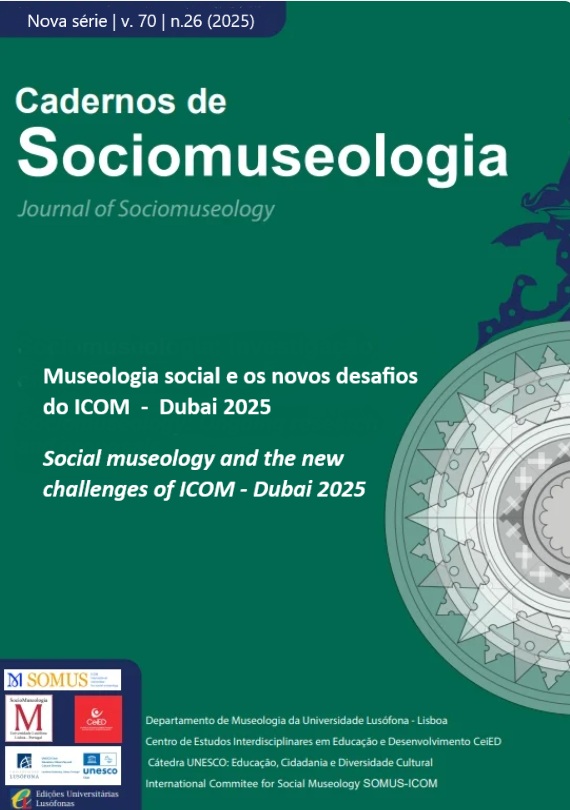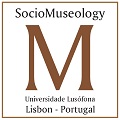Silenced Narratives: a Social Museology Approach at the National Coach Museum
Abstract
The National Coach Museum, in Lisbon, houses a collection of carriages widely recognized for its technical and artistic value. It reflects the social, political, and ideological contexts of its time, thereby retaining traces of colonialism. This article proposes a critical reading of the collection in light of Europe’s colonial past, with a particular focus on the Portuguese case. It seeks to identify both the direct and symbolic manifestations of colonialism in the exhibited carriages, analyzing the historical contexts of their creation and use, as well as the decorative elements that adorn them, which materialize and celebrate a Eurocentric, stereotyped, and hierarchical worldview.
The research spans various historical periods and political regimes, from the reign of King João V, marked by the influx of gold from Brazil and the increase in the trafficking of enslaved people; through the transformations brought by the Industrial Revolution; to the iconographic appropriation during the Estado Novo regime, when one of the carriages was replicated and used as a propaganda tool. By questioning dominant narratives and exposing the silences of history, this work aims to contribute to the debate surrounding the decolonization of cultural institutions. Thus, we propose a new perspective on the collection, aligned with the principles of Social Museology, which value critical engagement and the construction of plural narratives. Beyond highlighting the aesthetic or functional dimensions of the carriages, the goal is to deconstruct the imperial discourses they convey and to promote more inclusive, conscious, and socially committed museological approaches.
Keywords: Colonialism; Iconography; National Coach Museum; Social Museology; New Narratives.
Downloads
Authors retain copyright and grant the journal right of first publication with the work simultaneously licensed under aCreative Commons Attribution License that allows others to share the work with an acknowledgement of the work's authorship and initial publication in this journal.













